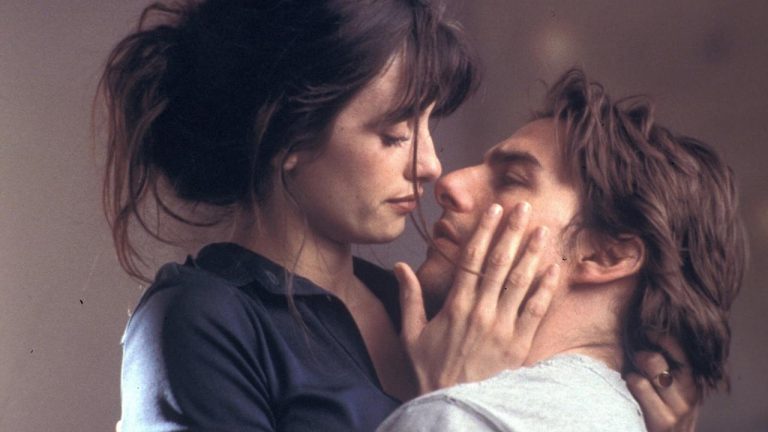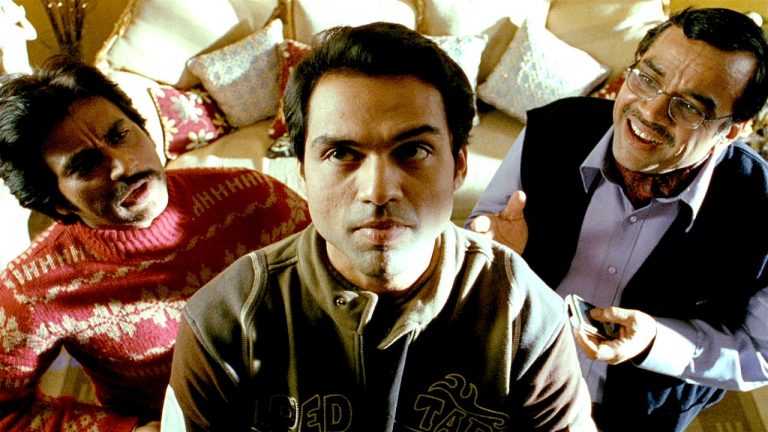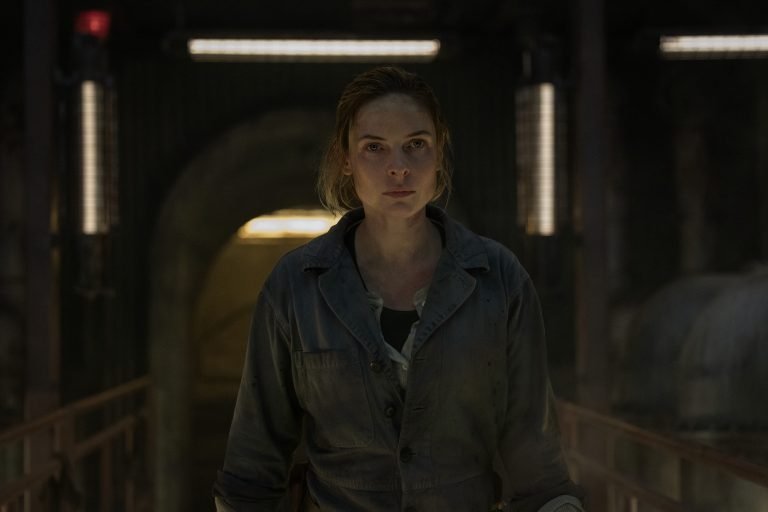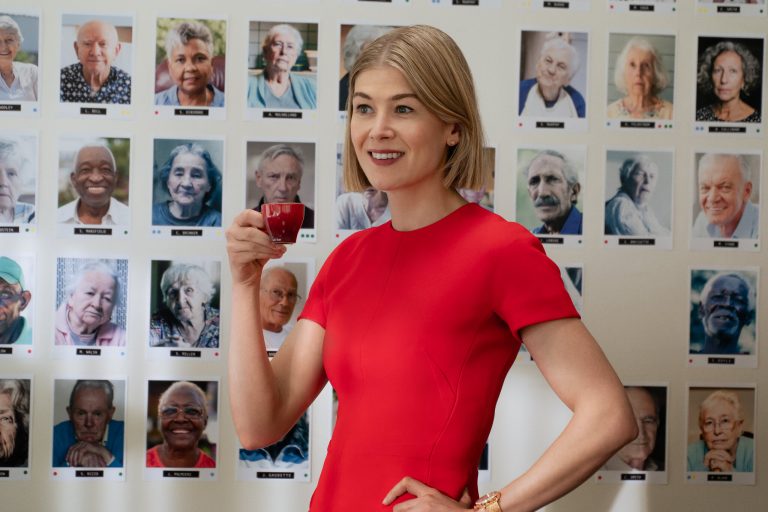When “Barbarian” and “Fresh” hit screens within eight months of each other in 2022, they not only revitalized the horror genre but also set an invisible benchmark for what modern horror could achieve. “Match,” a Tubi original directed by Danishka Esterhazy, strives to meet those standards but ultimately feels like an uneven fusion of the two. Though it never lands with the same force, the film isn’t without its sharp moments. Esterhazy has a keen understanding of the twisted dynamics of modern dating, and when her punches land, they leave a lasting mark.
Clocking in at a neat 99 minutes, the film doesn’t deviate much from its blueprint. The opening shot instantly pushes us into the dimly lit corridors, allowing us to take a peek into its gloomy realm. The first act builds tension organically and lays the groundwork for the nightmare to follow. The writing relies heavily on gore and grotesque imagery, making the morbidity feel too abhorrent at times.
We are introduced to Paola (Humberly González), an intelligent, guarded woman, agreeing to a dinner date with Henry (Jacques Adriaanse), a charming man she’s met online. Paola exhibits equal amounts of caution and craving initially, almost convincing us she’s level-headed. The first ten minutes could fit well in a sweet rom-com: mellow lighting, curated interiors, low conversation. Everything looks safe — and that’s exactly the point.
Esterhazy stages the early scenes with unnerving precision. The camera lingers too long on objects that shouldn’t matter — the lock on the door, the untouched wine, the glint of a knife. When Paola steps inside Henry’s home, the film stops flirting with the genre and commits to it. From that moment, “Match” transforms into a dreaded chamber, with no way out. The dynamics change for Paola once she is held hostage, and the crux of the story slowly unravels, piece by piece.
Jacques Adriaanse brilliantly plays Henry, displaying both compassion and cruelty in a razor-sharp fashion. The narrative doesn’t provide him with ample moments to go berserk, which massively hinders the strength of the premise. Since he’s portrayed as a mindless creature—incapable of independent thought and driven solely by his carnal urges—he never truly inspires fear. This, in turn, weakens the genre’s inherent power. Though Henry’s character arc briefly invites a flicker of empathy, it ultimately fails to deliver any real emotional payoff.
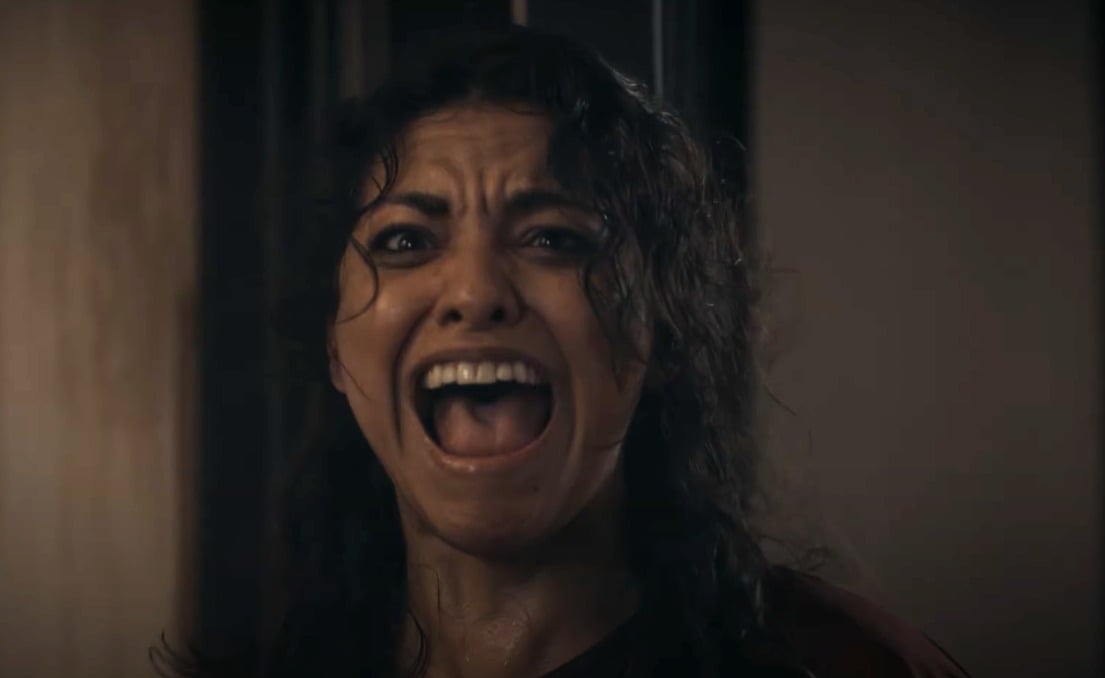
Also Read: 20 Underrated Horror Movies of the 2010s
With a third of the film hanging loosely in the balance, the deadly cat-and-mouse game starts to wear off, and the setup becomes like child’s play. The cracks start to show as the writing suddenly stops taking itself seriously. Lucille, played by Dianne Simpson, is intrepid in her role, and there are a couple of scenes where she makes the audience go “What did I just see?” She deftly anchors the storyline, acting as a clutch, holding it together until the end. Her menacing performance is what infuses life into this undercooked survival thriller that loses its steam toward the end.
The screenplay doesn’t play its cards close to the chest, which weakens the element of suspense created in the first 30 minutes. This ignites a chain reaction that sends the plot spiraling out of control. The narrative shows signs of revival through its reveals, but all the striving is sacrificed to poor characterization. Some of the creative choices the writers go for in the final act reduce the film to a pale caricature of its own. Luke Volker shows a glimpse of subtlety in his character Eli, who the film banks on to be its saving grace, but the pathetic shot at garnering sympathy in the climax softens the blow he delivers.
Paola’s relationship with her father feels like a narrative afterthought—introduced only to serve a climax that never fully convinces. The supporting characters, including Natalie, Paola’s sister Maria, and her friend Ryan, are carelessly inserted to push the plot forward, which not only drags the finale but also undermines its own tension. The film takes excessive creative liberties to protect its lead, who’s already wrapped in thick plot armor, and by the time it reaches its supposed turning point, the story borders on self-parody. While the essence of survival horror lies in crafting layered, evolving characters, “Match” settles for a shallow, almost naïve portrayal of its protagonist.
There’s a particular sequence — where Paola is hiding in a tiny supply closet, involving an unspeakable act that feels totally out of place, which is harrowing and intended solely for the purpose of creating shock value. The sound design produces a staggering effect during pivotal scenes, elevating the tension exorbitantly. The morality of the characters is explored when Paola shares screen space with Eli, and notwithstanding how their fates are traded for a weak upshot, the fleeting conversation between them works surprisingly well.
Although the film works in parts—thanks largely to the strong performances of its antagonists—it could have been a more compelling exploration of its subject matter had the writing and editing been tightened. The final shot aims for shock value, straining to provoke an extreme reaction, and in doing so, perfectly encapsulates the filmmakers’ muddled grasp of their own narrative. Despite a few genuine scares lurking beneath the surface, the film ultimately feels like a middling effort that collapses under the weight of its own “what-if” premise.


![Neon Bull [2015] – A Sensitive & Sensual Study of Dreamers from a Little-Known World](https://79468c92.delivery.rocketcdn.me/wp-content/uploads/2016/09/Neon-Bull-2-768x515.jpg)
